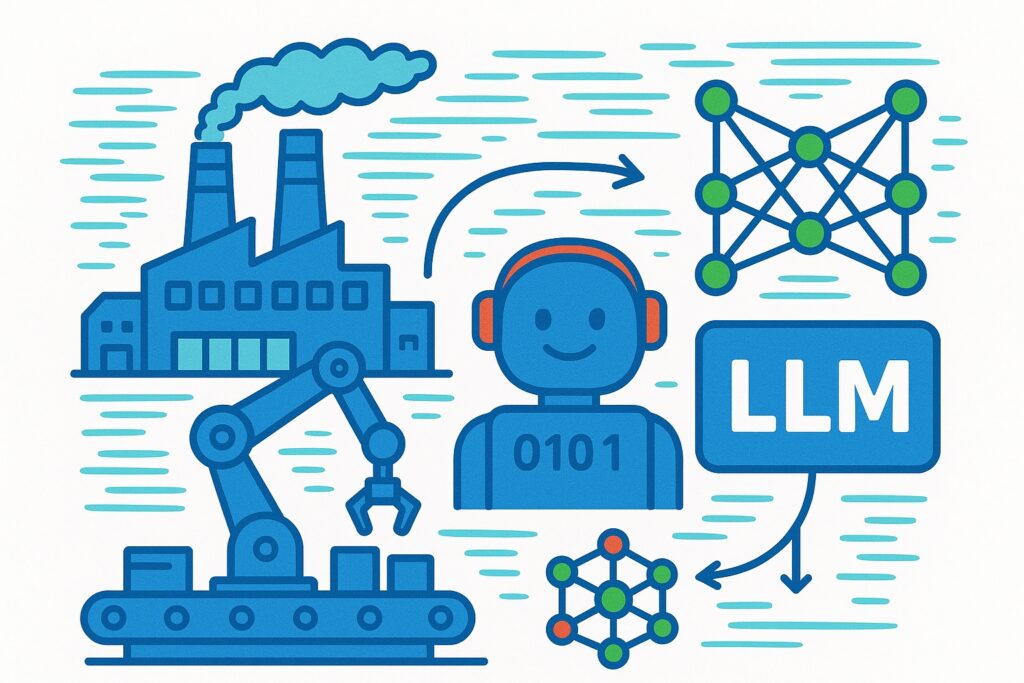UPDATE: Unfortunately, we reached the limit of our employees capacity, therefore we are unable to provide more seats for this class. The application process is closed. In this Research Focus Class (RFC), we would like to provide an environment for students to work on developing their own research ideas. With a guidance from research assistants, we will ask you to design and implement these ideas independently. Results of such classes may lead to identifying a Master’s thesis topic or publications in scientific venues. This class offers students the opportunity to gain hands-on experience through interactive and practical research in an innovative setting. Image generated with AI.
If you are interested in participating in this course, please send us an email (to rfc@dbis.rwth-aachen.de) with a brief description of your motivation for taking this course.
| Type | Other |
| Term | WS 2025 |
| Mentor(s) |
Stefan Decker |
| Assistant(s) |
Laurenz Neumann Yixin Peng Tim Holzheim Anastasiia Belova |
The RFC focuses on enhancing industrial operations and automation of data processing for manufacturing tasks with the help of Large Language Models (LLMs) and AI agents. Using open data sets, we suggest to research and design solutions for industry-related applications. The LLMs should perform semantic mediation of multi-modal data sources, thus bringing information of different modalities to one common representation. Such representation helps LLMs to generate analysis reports and make conclusions about the processes observed in the data sources. By supporting advanced capabilities such as summarization, classification, question answering, and translation, LLMs can help bridge gaps in knowledge management and information accessibility within industry. To make the use of the LLMs, AI agents should be utilized to start the information normalization process and subsequently use the results of the LLM generated reports and instructions to trigger further actions in the system.
Key Components of LLM-driven Agentic Systems:
LLMs: The “brains” behind the system – they process natural language, generate responses, reason over knowledge, and serve as the thinking engine for AI agents.
AI agents: Using Model Context Protocol (MCP), one can define an Agent Component. Part of the Agent Component functionality is to decide which capabilities of the system should be called upon a user request. Initiating data processing with LLMs is therefore the task of an AI agent.
Shared Knowledge Bases: Often powered by ontologies, semantic graphs, or dynamic memory – these help AI agents understand relationships and maintain coherent context.
Organizational Information:
Study Programs: Master Informatics; Master Software Systems Engineering; Master Data Science; Bachelor Informatics (nach Absprache als “Mastervorzugsfach”).
Language: English/German
Lecture slot: Doodled among participants, compulsory attendance
Start: WS25/26
Grading: RFC counts as a lecture, i.e. 6 ECTS
Contents of the RFC:
This RFC presents a preliminary list of areas to explore, which is intended to be suggestive rather than exhaustive.
Ontology Generation and Alignment in Industrial Contexts Using LLMs
This research investigates how LLMs can assist in constructing and aligning domain-specific ontologies to enable semantic interoperability across systems. It involves evaluating the LLM’s ability to understand domain texts, create taxonomies, and harmonize multiple data vocabularies. This would streamline cross-system data integration in smart factories.
LLMs as Knowledge Orchestrators in Industrial Environments
Explore how LLMs can support data access and semantic mediation across heterogeneous data sources. You will investigate mechanisms by which LLMs can support accessing heterogeneous data sources. Further, it is of interest how LLMs can structure, summarize, and contextualize information from various sources to support high-level decision-making.
LLM-driven Resource usage Optimization Models in Industrial Parks
Explore how LLMs can analyze historical resources consumption data and generate optimization strategies for factories and utility grids, addresses major challenges in resources management in case of critical climate conditions. The focus is on reducing energy waste and emissions while maintaining operational efficiency. LLMs may also simulate usage scenarios under different environmental or economic constraints.
Carbon Footprint Estimation from Multi-modal Industrial Data Using LLMs
Explore how LLMs can estimate the carbon footprint of industrial activities by interpreting logs, machine data, and supply chain records. The goal is to produce a natural language report or dashboard that informs ESG (Environmental, Social, and Governance) reporting efforts. Multi-modal data fusion and reasoning are key.
LLM-Powered Threat Detection in Smart Industrial Zones
LLMs can analyze logs, anomaly alerts, and network traffic descriptions to detect cyberthreats. Here you can focus on language-based cyberthreat interpretation, prioritization, and alert generation. The system acts as an intelligent filter for security analysts.
Trust Modeling in Multi-Agent Industrial Systems Mediated by LLM Reasoning
This research explores how LLMs can evaluate trustworthiness among agents or components based on behavior, audit trails, and policy rules. It builds a trust inference layer to manage collaboration among autonomous systems. The LLM acts as a reasoning hub to ensure secure, trustworthy interactions.
Adaptive Training Interfaces for Industrial Workers Using LLM Tutors
Create intelligent training assistants that can answer questions, offer procedural walkthroughs, and evaluate user comprehension. LLMs adapt content based on the worker’s role, experience, and native language. This system enhances workforce upskilling and reduces onboarding time.
Overall Schedule:
Lecture phase: 2 weeks;
Concept phase: 4 weeks;
Mini project: up to 14 weeks.
As this course is supposed to be highly interactive, seats are limited. Should we receive more registrations than seats available, we will select students based on their qualification for this course.
